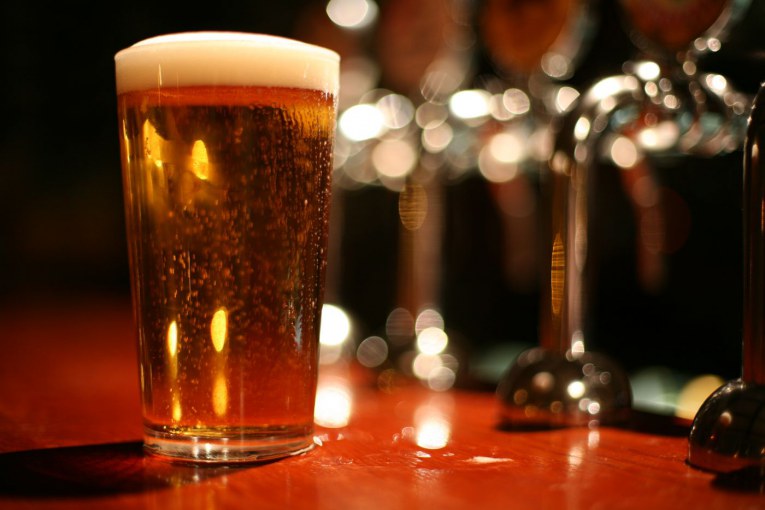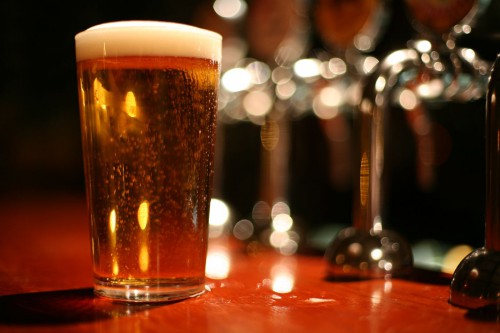

The city council this week is expected to approve an Entertainment Permit Ordinance which will repeal the ordinance establishing a “moratorium on certain types of news businesses, and repealing Chapter 11 of the Davis Municipal Code, regarding Dances and Dance Halls, and reenacting Chapter 11 of the Davis Municipal Code, regarding Entertainment Permits.”
According to the staff report, the fees associated with the entertainment permitting would off-set increases to staff costs associated with issuing permits.
If successful, this process would end the long discussion that came in the aftermath of the fatal stabbing on September 19 at KetMoRee last fall. Ten days later, the council approved the ordinance establishing a city-wide 45-day moratorium on new, expanded, or altered bars, nightclubs, and restaurants serving distilled spirits, and restaurants exceeding 2,500 square feet and serving beer and wine.
The moratorium was extended by council action on November 3, 2015.
The Davis Entertainment Permit Ordinance establishes two types of permits. First is an entertainment permit which is a standard permit, and second is a special event permit which would permit a special event – in a location that does not have an existing entertainment permit, is not the business offering entertainment, is for a limited period and not for a recurring or regularly scheduled event.
The key part of the ordinance is that it “requires all entertainment venues abide by certain operating standards that regulate the hours of operation, disorderly conduct, intoxicated customers, reasonable passageway, noise regulations, orderly dispersal, and bringing alcoholic beverages to the establishment.”
Moreover, “the Ordinance specifies that the police chief may impose certain tailored conditions relating to the operation of an entertainment establishment.”
Violators would be subject to fines, a criminal penalty for a third violation, and “as an additional remedy, the violation of any provision of this chapter shall be deemed and is declared to be a public nuisance and may be subject to abatement summarily by a restraining order or injunction issued by a court of competent jurisdiction.”
Permit conditions are “are customizable to the business. Not all would be placed on each permit.”
Here are some of the key conditions:
- The premises must serve food – “incidental, sporadic or infrequent sales of meals or a mere offering of meals without actual sales shall not be deemed sufficient to consider its licensed premises in compliance with the aforementioned code section.”
- Quarterly gross sales of alcoholic beverages shall not exceed the gross sales of food during the same period.
- Subject to inspection by Davis Police or City
- All Licensee bartenders, security employees, wait staff and managers shall successfully complete a California Alcoholic Beverage Control License Education/Alcohol and Drugs training (LEAD) or Responsible Beverage Server (RBS) training course within sixty (60) days of being hired.
- Business will be held responsible for informing all its employees about Operating Conditions associated with the permit and any applicable related local, county, state, or federal laws.
- Moving tables and/or furniture that are used for regular food or alcohol service in order to create space for customers to stand and consume alcohol is not permitted.
- Tables and/or furniture may be moved in order to create dance floors or spaces for a DJ, band, or other live performers.
- Food service shall be available at all times when alcoholic beverages are sold, served, or consumed on Licensee’s licensed premises. Licensee may offer a limited food service menu after 10:00 p.m.
- No nudity or partial nudity
- No employee or agent of business shall be permitted to accept money or any other thing of value from a customer for the purpose of sitting or otherwise spending time with customers while in the premises
- No off-site alcoholic beverages, smoking of e-cigs, drugs
- Business shall be responsible for maintaining the area adjacent to its premises free from litter, trash, and/or debris.
- Business will require all its employee security and/or bouncers have their Proprietary Private Security Officer (PSO) card issued by the California Department of Consumer Affairs.
- Business will contract with either a licensed security provider and/or with City to provide for supplemental police services on those Thursday, Friday, and Saturday nights that are specified by the Davis Police Department, between 10:00 p.m. and ½ hour after the close of business.
- Business may enter into agreements with other establishments in order to use a single armed security officer or supplemental police officer for several nearby businesses.
- After 10:00 p.m. or the commencement of Late Night operations necessitating the permit, whichever is later, patrons entering Licensee’s premises will be subject to security screening and bag inspections.
- Alcoholic beverages shall not be offered at significantly reduced prices that are meant to encourage excessive consumption of alcohol such as dollar drinks or five-for-one offers during “happy hour” type promotions.
- After 11:00 p.m., alcoholic beverages shall be served in standard sizes that are consistent with the industry and shall not be served in pitchers, “buckets,” or similar high volume amounts.
- Business will not allow in and out privileges (i.e. allow patrons to leave and return to the establishment) after 1:00 a.m. No new patrons will be admitted after 1:00 a.m.
- Business will not allow entry lines to form outside the business after 1:00 a.m.
In short, these conditions implement the soft-closing time of 1 a.m., with people who have already entered the facility allowed to remain until 2 a.m., but no one admitted or allowed to leave and return after 1 a.m. It implements security and wanding at 10 p.m. It requires food to be served and that the main purpose of the establishment must be to serve food.
It prohibits the use of floor space for additional drinking but allows it for dancing and music.
Will these resolve the issues that led to the attack on September 19? Perhaps. Obviously it would not prevent someone from entering with weapons prior to 10 p.m. and it would not prevent a fight from going outside and ending with weapons and violence.
However, it preserves the downtown as a location for entertainment while it takes steps to clean it up.
The next tragedy that occurs will likely result in far more draconian measures.
—David M. Greenwald reporting

IMO, these are the key provisions which very well may avoid a lot of the problems that have been occurring:
No nudity or partial nudity (No more “Lingerie Nights” where girls are allowed free drinks if they come dressed in skimpy nighties)
All Licensee bartenders, security employees, wait staff and managers shall successfully complete a California Alcoholic Beverage Control License Education/Alcohol and Drugs training (LEAD) or Responsible Beverage Server (RBS) training course within sixty (60) days of being hired. (Bartenders and bouncers know exactly what their obligations are in regard to keeping an orderly house – no more disorderly houses will be tolerated)
Business will contract with either a licensed security provider and/or with City to provide for supplemental police services on those Thursday, Friday, and Saturday nights that are specified by the Davis Police Department, between 10:00 p.m. and ½ hour after the close of business. (Extra security will be available, paid for by the nightclub/bars themselves, to make sure things are kept orderly inside and outside these establishments)
After 10:00 p.m. or the commencement of Late Night operations necessitating the permit, whichever is later, patrons entering Licensee’s premises will be subject to security screening and bag inspections. (Patrons will be checked for weapons BEFORE they enter the nightclub/bar)
Alcoholic beverages shall not be offered at significantly reduced prices that are meant to encourage excessive consumption of alcohol such as dollar drinks or five-for-one offers during “happy hour” type promotions. (No more free drinks given to only pretty girls that encouraged over-intoxication)
Business will not allow in and out privileges (i.e. allow patrons to leave and return to the establishment) after 1:00 a.m. No new patrons will be admitted after 1:00 a.m. (No more bar-hopping after 1 am)
It is open to question whether these restrictions will be enough to keep things more orderly during the nightclub scene, but it is a good start. If things don’t remain orderly, restrictions can always be tightened if necessary. Bottom line – violence and death are not an acceptable byproduct of the downtown nightclub scene.
The downtown scene has been so peaceful since the murder.
I saw KetMo ramped up again last Thursday late night.
I suspect Tres H. will ramp up in the next few months.
It was nice while it lasted.
Tres isn’t going to go back, the owner doesn’t want to.
I’m not so sure. His comments in the Enterprise a few months ago left the door WIDE open.
His comments to me a few months ago did not
True. The two were quite different.
Hmmmmmmmmmmmm.
The plethora of downtown bars may be a lot safer after 10 pm because of these rules. But on weekend nights it will still be a downtown dominated by late-night bars. It used to be fun for me to stroll around downtown in the evenings – no drunkenness, no vomiting, no outdoor violence to speak of (maybe Antique Bazaar was a little rowdy). But not any more – I just avoid the place. A quiet, laid back Bohemian downtown is now party central on the weekends. Sad to see it deteriorate over the years.
One of the main arguments against the moratorium and in favor of relaxing the nightclub regulations downtown was that the parties would just move out of the downtown area and be harder to control as house parties. I certainly hope that our police have been, and will be keeping track of the number of complaints and incidents both in downtown and in other areas of town for comparison.
I also have enjoyed the more peaceful nature of downtown recently and would like to know if the predicted outbreak of residential area problems has occurred or if this was just a projection from those who wanted the downtown scene to stay active as long as possible for the benefit of a handful of businesses choosing this model.
Actual data would be nice and I am hoping that it will be forthcoming with comparisons of prior to, during, and after the moratorium.
I have never bought this argument. I don’t believe the same people that would have or attend a house party would instead decide to go downtown and dance at a club. A few percent may hold a house party instead of dancing, but the numbers don’t add up. All of downtown party scene is a at most several hundred people out partying Thu-Sat. If there are 30,000 students, and 10% are weekend binge-drinking alcoholics, that’s 3,000 people who are partying, way more than all the venues in downtown can handle. You can argue my numbers, but the point is the same: there will always be house, dorm, apartment, frat parties in town and the quantity and customers are not largely overlapping with the downtown Thu-Sat 10pm – 2am party scene. This is even more pronounced when you consider that a large number of people who came to the downtown partying scene were from out of town.